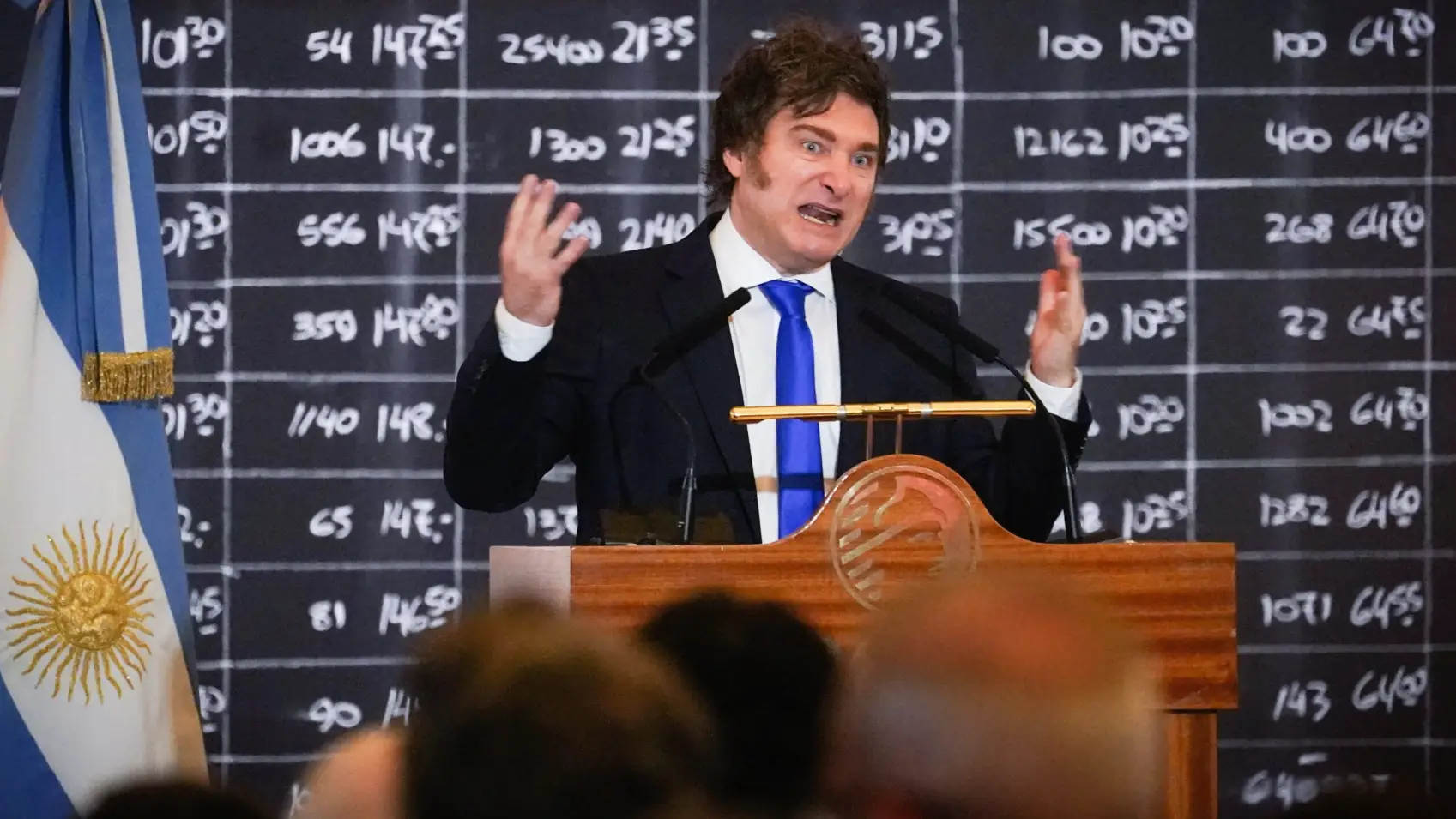In almost two years of government, the evaluation of Javier Milei’s administration has remained surprisingly stable: there is no clear trend toward wear and tear, but neither toward strengthening. This phenomenon is striking, considering that, as the President himself claims, he carried out “the biggest adjustment in history,” which inevitably had a negative impact on various aspects of Argentines’ daily economy. However, some moments during these months did trigger concern due to their dizzying effect on public opinion.
If one takes a simple average of the main surveys on Milei’s government approval, the cycle average is nearly 49 points. However, September 2024 stands out as the lowest point with 45 points. Determining its causality is complex, but most analysts and researchers agree that there were five central issues that acted as catalysts. One was the deterioration of the university budget, which led to a massive march at the end of April. Another, the cuts in medical coverage for older adults through PAMI in June and August, and the repression of the pensioners’ march after the veto of the pension law in September. By late May, it also came to light that the Ministry of Human Capital had stockpiled food, preventing its delivery to community kitchens. Lastly, and not insignificantly, the exchange rate of the blue dollar—the one traded in the informal market—reached 1,500 pesos for sale in July, generating a sense of economic destabilization. Each of these elements, to varying degrees, activated different sensitivities: from fears about the educational and social future to perceptions of injustice in the distribution of resources or the loss of economic control.
At that time, the Torcuato Di Tella University reflected this period of instability in its Government Confidence Index. In the latest survey of August 2025, not only was there a new sharp monthly drop of nearly 14 points, but the level fell below that observed in September 2024. Once again, budget unrest at the Garrahan Children’s Hospital, the veto on pension increases, the veto of the law declaring a disability emergency, stagnant consumption, and a new upward rally of the dollar’s exchange rate appeared at the center of the turbulence.
As if the outlook were not discouraging enough for the government, just over fifteen days before the elections in the province of Buenos Aires and two months before the national elections, the Spagnuolo case emerged as a new destabilizing factor. It is a complaint of alleged corruption maneuvers in the management of public funds destined for the purchase of medicines for people with disabilities, involving a second-tier official but with close ties within the government. Just days after the case became known, an M&F survey revealed that 90% of Argentines were aware of the issue, an unusually high figure in a country where politics often takes a back seat to other daily urgencies. The attention is explained, without doubt, both by the electoral context and by media amplification and, not least, by the interested dissemination that would have been promoted by rival internal factions. However, while the scandal’s visibility is enormous, its immediate electoral impact seems limited: 80% of those surveyed stated that they would not change their vote because of it. The report does not specify, but even if only a fraction of those who said they would change their choice corresponded to swing voters, the effect could be significant and translate into serious damage in a close election.
That said, it is possible that the most relevant impact of this case does not lie in altering voting intentions in the short term, but in its potential to erode Milei’s narrative. Something that would undoubtedly be very damaging in the medium and long term. From the outset, the government built a political narrative based on the idea that corruption and mismanagement of public resources were the exclusive domain of an alien political-business “caste,” responsible for the country’s stagnation and poverty.
In contrast, Milei presented himself as someone coming from outside politics to put an end to the caste and its practices. The economic adjustment was justified as a temporary sacrifice to achieve a better future. In public opinion studies, all of this has permeated and is supported. There are many aspects of Milei that are not liked, but he is credited with having brought order to the economy, generating more calm, and providing a contrast to the Kirchnerists. The Spagnuolo case, however, threatens to corrode that founding narrative by showing that opaque practices can also take root within the ruling camp itself. For now, it is a crack in the narrative, but it could become something more serious for that which gives meaning to Milei’s rise to power, his daily actions, and his projection into the future.
It is still possible for the government to obtain a good electoral result in 2025, as reflected in the polls. The perception that it managed to stabilize inflation and the absence of competitive alternatives in the opposition are its most important assets. However, the challenge is not limited to containing the short-term impact in the polls, but to reconfiguring a political narrative that today appears threatened at its most sensitive core: the promise of being different.
It is possible that the idea of a “media operation” will, for a time, be the only resource the government relies on. But that tactic is as weak as it is unsustainable. If the perception of corruption takes root among the electorate, particularly among the government’s closest supporters, words will lose weight against what is perceived as facts. As the philosopher and poet Ralph Waldo Emerson once said: “What you do speaks so loudly that I cannot hear what you say.”











